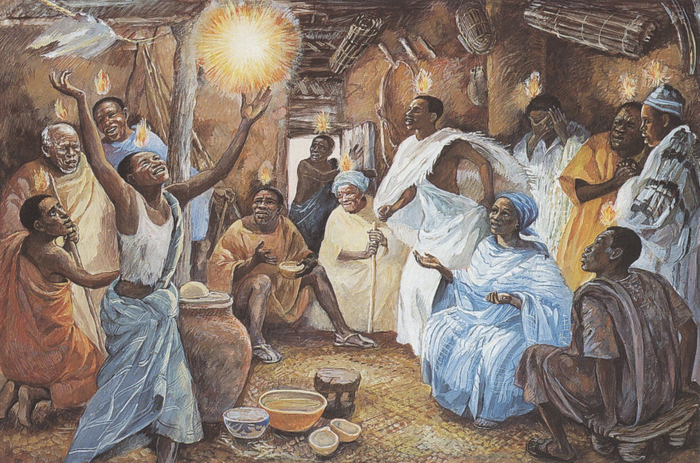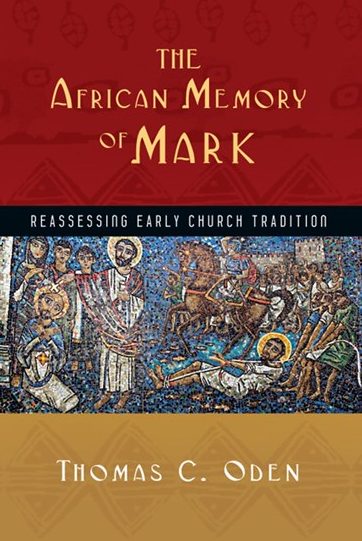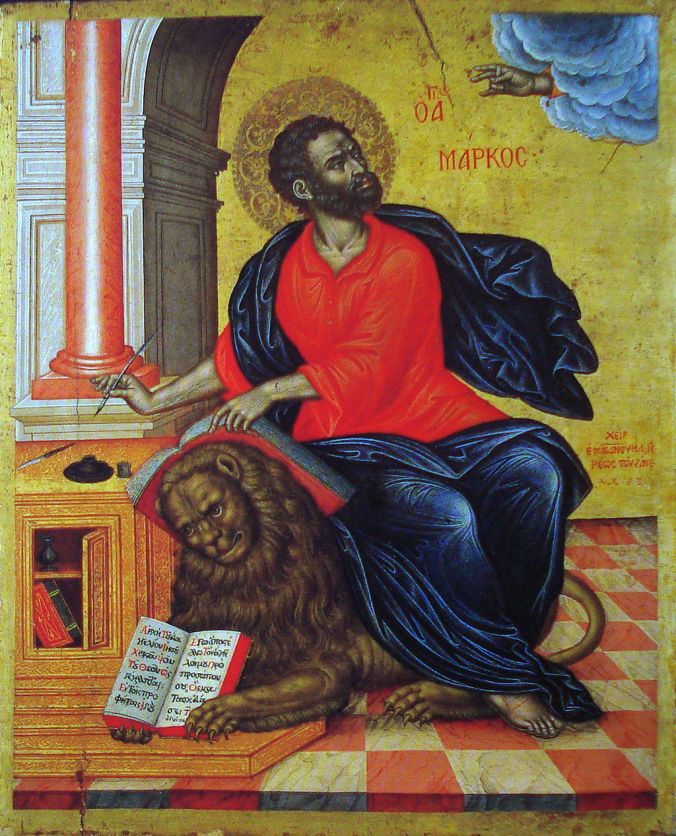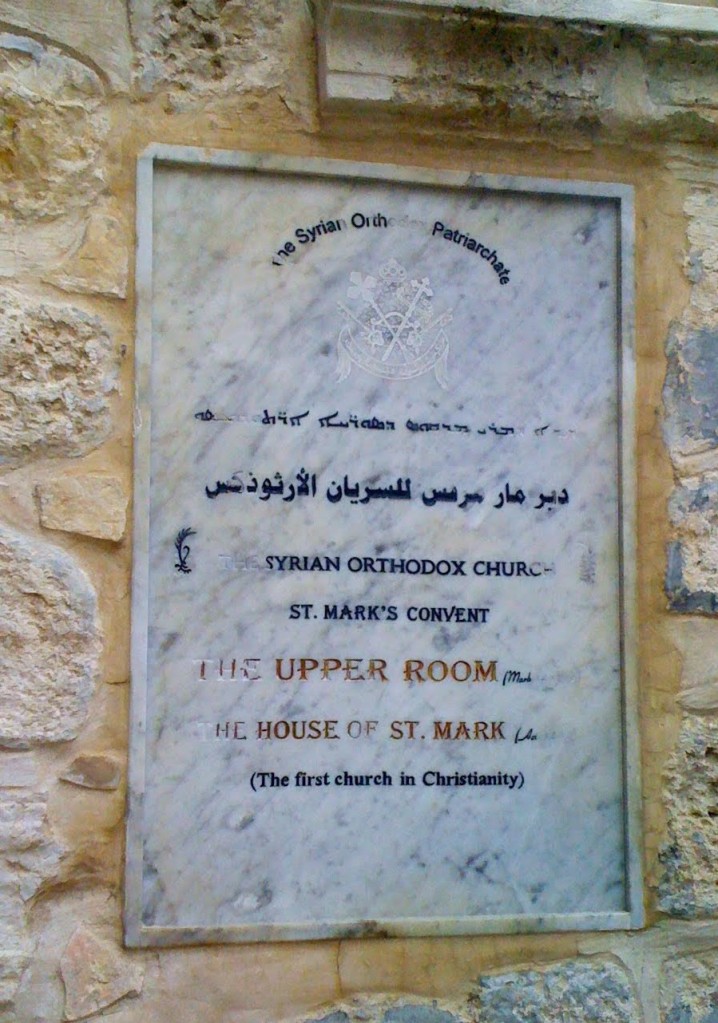Of all the books I read in 2021, nothing caught my eye more than this assertion by Thomas C. Oden in his 2011 book The African Memory of Mark:
The first Pentecost took place in the home of an African Jewish woman.
Oden’s remarkable study points out that the African church memory is shaped by St. Mark and his Gospel. St. Mark was born in Cyrene in Libya, North Africa and was the Apostle who evangelized Egypt and in Africa at large. African Christians see Mark as representative of the African perspective of Christianity.
While hints of Mark’s important African identity are present in Western considerations, it is no secret that most of Western church history accounts are Euro-centric and have ignored African church history and the continent’s ancient testimony about the shaping of Christianity. This is a point from another book I read in 2021 by Phillip Jenkins entitled, The Lost History of Christianity, which points out that during the first millennia of Christianity, the majority of Christians belonged to African and Asian Churches.
Support for Oden’s claim that Pentecost was held in an African Woman’s home was a startling discovery for me. In all my studies of Pentecost, I had never heard such a claim (mainly for the reasons just mentioned). The location of the upper room is a debated issue among scholars. Some argue the upper room had to be part of the Temple if the Pentecost pilgrims were to have witnessed it as recorded in Acts. However, this may not be the case if the disciples “sitting” when the Holy Spirit fell, which would not take place in the Temple where they stood. Plus, as outcasts for their belief in the a crucified man claiming to be the Messiah, it seems unlikely that their prayer meetings could be hosted by the Jewish leaders.

Instead, Oden makes a strong argument for Pentecost taking place in the home of Mark’s mother, a Jewish woman from Africa, who is mentioned in key passages in the NT. Not only was Mark a companion of Paul and Barnabas, but his mother Mary was likely an early disciple and played a Nicodemus-like role in the history of the Church
Oden’s line of argument is as follows:
- John Mark, the writer of the third gospel, was born in Cyrene (Libya) in North Africa. He was African.
- Mark’s parents, Aristopolis (Rom 15:10) and Mary (Act 12:12), were wealthy diaspora Jews living in Cyrene, and were members of the tribe of Levi.
- Early in his life, Mark’s parents were forced from Cyrene and moved to Jerusalem where they had a large home with an “upper room” (Acts 12:12).
- Aristopolis and Mary were relatives of Barnabas, who was also a Levite from Cyrene (Acts 4:36), with whom Mark traveled on missionary journeys.
- Mark was close associate with Peter (1 Peter 5:13), Paul (Philemon 1:24), and Barnabas (Acts 12:25) and is considered the Apostle to Africa.
With this in mind, Mark and his mother, Mary, are keys to deciphering the identity of the mystery of the location of the upper room of the Day of Pentecost. Here are a few of the facts:
- Mark 14:15 mentions that Last Supper took place in a “large upper room, furnished and ready.”
- Acts 1:13 says the disciples were hiding in an upper room large enough to hold the disciples.
- In Act 2:1-4, the Holy Spirit descended in the upper room where the disciples were gathered and praying.
- Acts 12:12 says the upper room, this time where the disciples were gathered to pray for Peter, belonged to “Mary the mother of John, also called Mark.” Mary’s home was a wealthy home with a gate and servants (named Rhoda) near the Temple.
- This house, according to tradition, is the location of St. Mark’s Monastery, very close to the Temple Mount, where Pentecost pilgrims could have seen and heard what was taking place in Acts 2.
- And, we know that Egypt and Cyrene were among the nations mentioned in the Act 2 languages.
Therefore, Oden argues, “Thus if this too is properly identified as the upper level of the house of Mark’s mother, it is indeed in Mark’s house that the Holy Spirit descended on the disciples after the crucifixion, resurrection, and ascension.” (Oden, African Memory of Mark, 107).
While this claim is foreign to Western histories and biblical studies, the tradition of Mary’s house as the location of Pentecost has been preserved by African Coptic historians for generations. Mary, the Mother of Mark, is a central figure in their narrative.
Syrian Orthodox Patriarch Mar Aghnatius Yacoub wrote:
- “Mark’s mother had a house in Jerusalem, through tradition and documented history it is confirmed that in it God gathered His Apostles, celebrated the passover, washed the feet of His disciples. . . The apostles waiting in it till the Lord came back to talk tot hem after the Resurrection. . . He gave the the ecclesiastics, the priesthood authority, and filled them by his Spirit. . . . It became the seat of Jerusalem.” (Oden, African Memory of Mark, 98).
Similarly the Ethopic Coptic Synaxarion says:
- “Mark’s house was the first Christian Church, where they ate the Passover, where they hid after the death fo the Lord Christ, and where in its upper room the Holy Spirit came on them.” (Oden, African Memory of Mark, 94).
Today, on that site is the Monastery of St. Mark, which holds the 6th Century inscription: “This is the house of Mary, mother of John, called Mark. Proclaimed a church by the holy apostles under the name of the Virgin Mary, mother of God, after the ascension of our Lord Jesus Christ into heaven. Renewed after the destruction of Jerusalem by Titus in the year A.D. 73.”
The discovery of the African connections to the first Pentecost are both compelling and interesting. Reading his book I immediately recognized that it should be no coincidence that that African Christianity is so decidedly Pentecostal in nature, a point he eventually makes. Today, African is one of most Pentecostal continents in the world. African Pentecostal and Charismatic Christians number over 230 million, representing 34% of all Christians in Africa (World Christian Encyclopedia). Oden says, “Even today, the vast African body of believers is still marveling at the Pentecostal event, hosted by an African woman.” (Oden, African Memory of Mark, 109).
If Oden is right, the first Pentecostal church was in the home of an African disciple. Is it any wonder, then, that the modern Pentecostal Movement was launched by a prayer meeting at an African American home that was led by the a son of an African slave? Or that an African American mission on Azusa Street became the nexus for a global revival that changed Christianity? Or is it any wonder that African spirituality has shaped Pentecostal worship aesthetics such as shouting, dancing, and tarrying? Finally, if Pentecost began in an African woman’s home, is it any wonder that Pentecostalism has included women as co-laborers and proclaimers of the gospel around the world.
I believe the African memory, put forth in this important work by Thomas Oden, is a reminder to us in the West that Christianity is, and always has been, a global religion. Its earliest believers were among the nations of the world at Pentecost. And today, Pentecostalism is the fastest growing segment of Christianity, helping to recapture that global character in fulfillment of the eschatological hope that “every nation, tribe and tongue” will stand before the Lamb and praise his name forever (Rev. 7:9-10).



Fascinating insights. Thanks for the research, Danny!
This is really cool! Thanks!
Reblogged this on συνεσταύρωμαι: living the crucified life and commented:
This is amazing!
This is so striking and fulfilling to me as an African. Danny thanks for digging up this information
My sister-in-law was born in South Africa..Given the fact that her ancestors came from Europe at some point, I wouldn’t regard her as African. There is NO doubt that Africans have been mentioned in the New Testament!!! However, many people of different origin have lived in North Africa. Location has nothing to do with ethnicty. I have studied Theology at Wolverhampton and my lecturers would have said back it up with evidence!!! I suggest to start with a defenition of African, followed by a discussion of ethnic Africans in the Bible and finally a discussion of the peoples ethnic background who where there on Pentecost and the ethnic background of the people in Peter’s Vision.
Pingback: Things Glen Found Interesting, Volume 354 - Glen Davis
North Africa is not black tho. An African in the first century meant a person from the Roman province called Africa, today Libya and Tunis.